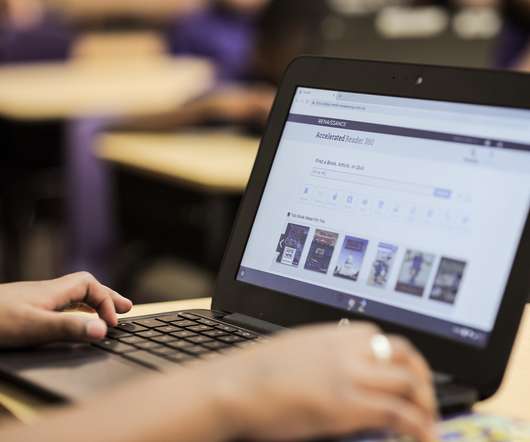Going Back to School to Learn About Blended Learning
Ed Tech from the Ground Up
MAY 16, 2016
public schools to attend an Apple Distinguished Schools Day where Natick shared its blended learning approach with other schools and districts. First, a quick definition: According to the Online Learning Consortium blended learning means “a portion of the traditional face-to-face instruction is replaced by web-based online learning.”.















Let's personalize your content